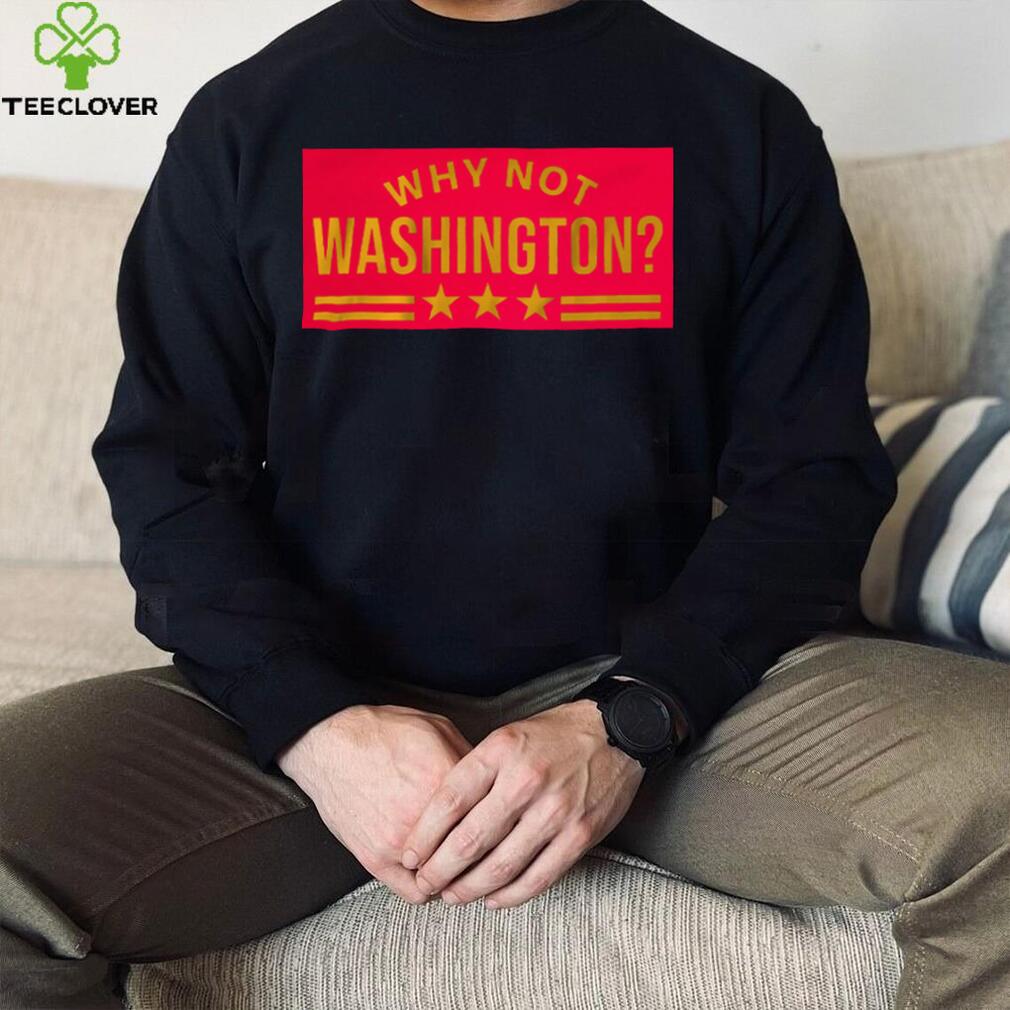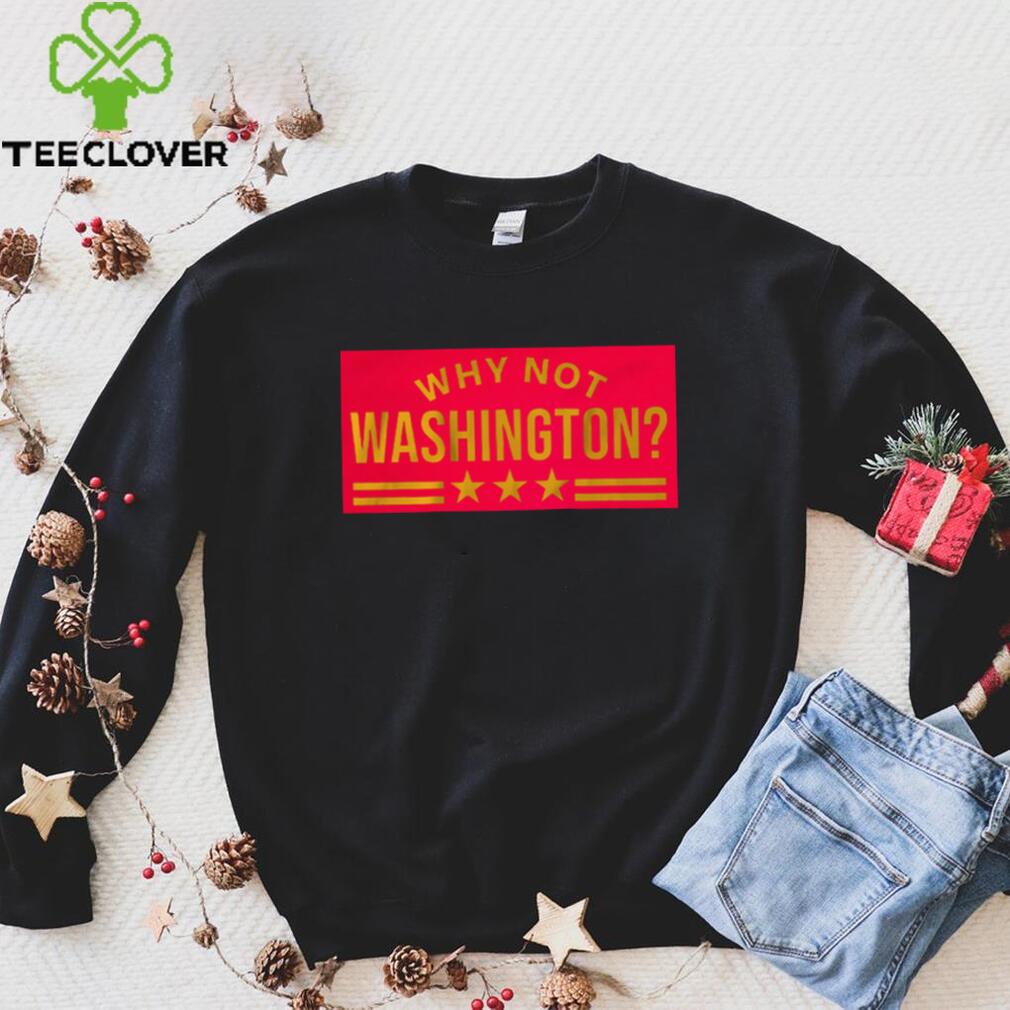why not washington shirt
-
5% OFF 2 items get 5% OFF on cart total Buy 2
-
10% OFF 5 items get 10% OFF on cart total Buy 5
-
15% OFF 10 items get 15% OFF on cart total Buy 10
Share this:
- Click to share on Twitter (Opens in new window)
- Click to share on Facebook (Opens in new window)
- Click to share on LinkedIn (Opens in new window)
- Click to share on Tumblr (Opens in new window)
- Click to share on Reddit (Opens in new window)
- Click to share on Pocket (Opens in new window)
- Click to share on Pinterest (Opens in new window)
why not washington shirt
Judging from what I saw during Halloween and Thanksgiving, I would say the why not washington shirt, cozy and nesting look is in. Stuff that gives off that homespun look. Think late 1960’s all the way up to the 1970’s. I don’t know if you remember the Carter era but I think that’s going to be during this season and the next. Inflation was high, gas prices went through the roof, hamburgers were so expensive, people weren’t used to prices being so high. So people stayed at home more, and I think that’s what is going to happen. They will be baking and cooking more at home as opposed to going out and running a big tab. But you asked about the decorations, and I will try to answer your question. Homemade, homespun, cozy and homey. I think that’s going to be the trend, this year. People don ’t have the money for the glitz or all the bells and whistle this holiday season. No over the top, no putting on the dog, so to speak or no needless spending. If you can make it, that’s great and there is a ton tutorials on Youtube to show you how.
 (why not washington shirt, sweater)
(why not washington shirt, sweater)why not washington shirt
Though many people refer to the holiday as Chinese New Year, Chinese people aren’t the why not washington shirt who celebrate. The holiday, which is Friday, Feb. 12, this year, is widely celebrated across East Asia and some parts of Southeast Asia. As such, the holiday goes by many names Tết in Vietnam, Losar in Mongolia, Imlek in Indonesia and Tsagaan Sar in Tibet, to name a few. Many of these communities traditionally hand out gifts like mandarin oranges or red envelopes filled with money, usually from an elder to children, or unmarried people. The Iu-Mien community, a Southeast Asian minority group from China, traditionally gives out dyed red eggs. Many East Asian communities will also light firecrackers, clean their houses from top to bottom useful during a pandemic and burn paper money for their ancestors. And lion dances, although commonly associated with Chinese culture, can be found in Lunar New Year celebrations across Vietnam, Korea, Tibet and Indonesia. One might also wear traditional outfits, such as Korean hanboks, or play games like yut and mahjong.
 (why not washington shirt, unisex t-shirt)
(why not washington shirt, unisex t-shirt) (why not washington shirt, hoodie)
(why not washington shirt, hoodie)SHIPPING POLICY
SHIPPING COST?
- The shipping cost within the U.S. is $5.99 plus $2 for each additional item.
- For international shipping: starting from $11 plus $6 for each additional item.
WHERE DO WE DELIVER?
We offer shipping to customers worldwide.Shipping time
US Regions:
- Handling time (Monday to Friday): 1-3 days
- Shipping time (Monday to Friday): 3-5 days.
Other Countries:
- Handling time (Monday to Friday): 2-9 days
- Shipping time (Monday to Friday): 15-30 days.
Delivered
Total delivery time = Handling time + Shipping timeThis Flowers having a Weird Mom builds character Xmas Day T-shirt, hoodie, sweater, tank top, long sleeve, and V-neck t-shirt is a made-to-order product, It is designed by TEECLOVER LLC. This is a limited edition product was made in the USA.
Brand: TEECLOVER Clothing LLC, Inc. - An online fashion company in the USA
At TEECLOVERLLC, we have provided quality T-shirts that are sure to make you feel comfortable and cool even in the scorching heat or cold weather. We also seek to provide our customers with the highest level of customer service possible by adhering to customer satisfaction policies and an open communication style. T-SHIRT FEATURES: - High quality 100% Soft cotton (fiber content may vary for different colors) UNISEX shirt. HOODIE and SWEATSHIRTS FEATURES: - 50% Cotton; 50% Polyester (fibre content may vary for different colors) - IMPORTANT: Runs true to size. Are buyers responsibility to consult the size chart before placing the order. - The design is printed on the t-shirt with a digital printer. - If you want to CUSTOMIZE more this product, please send me a message. CARE: - Machine wash, with cold water, and inside out - Tumble dry on low or hang to dry - DO not iron directly on the design ♥ HOW TO ORDER T-SHIRT, HOODIE, SWEATSHIRT , LONGSLEEVE









